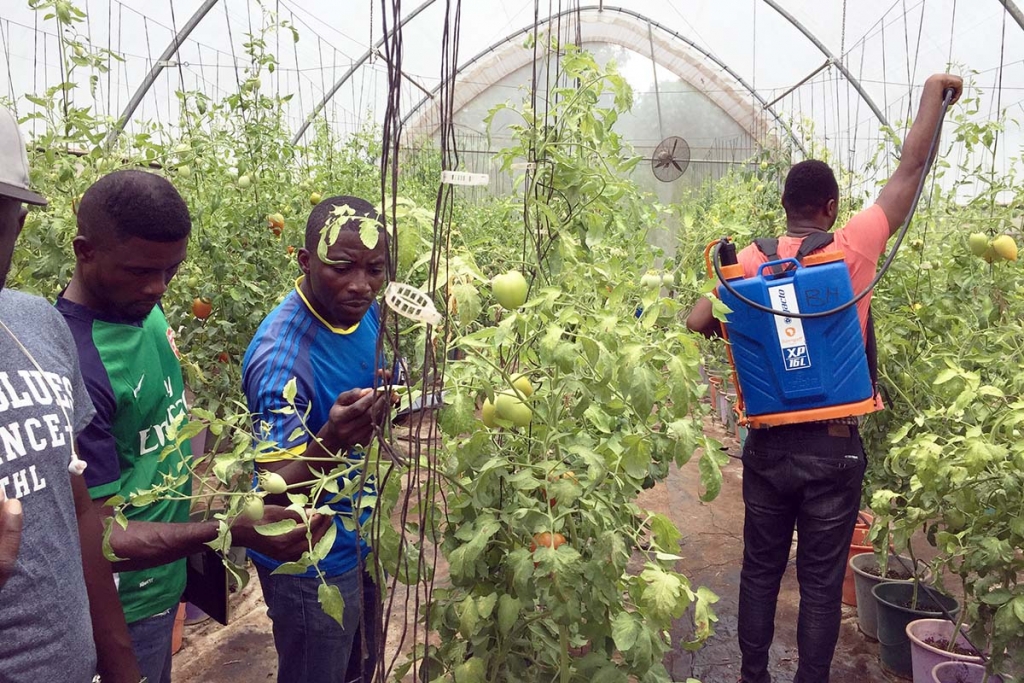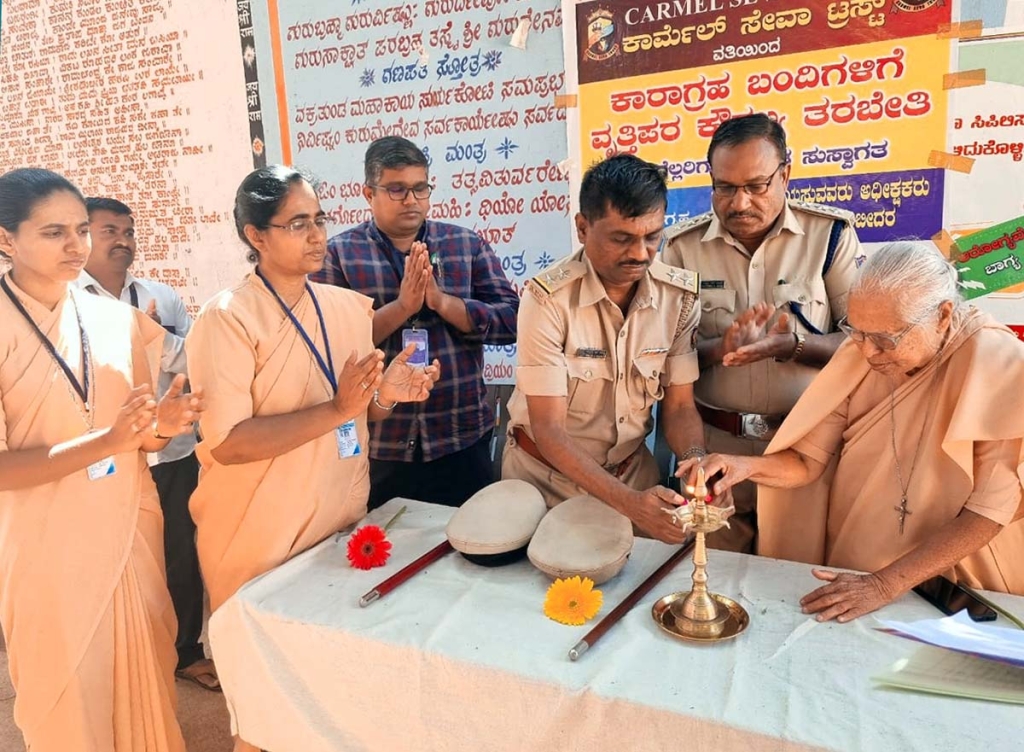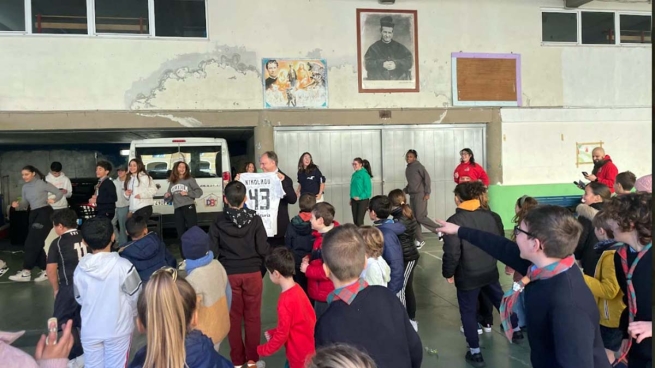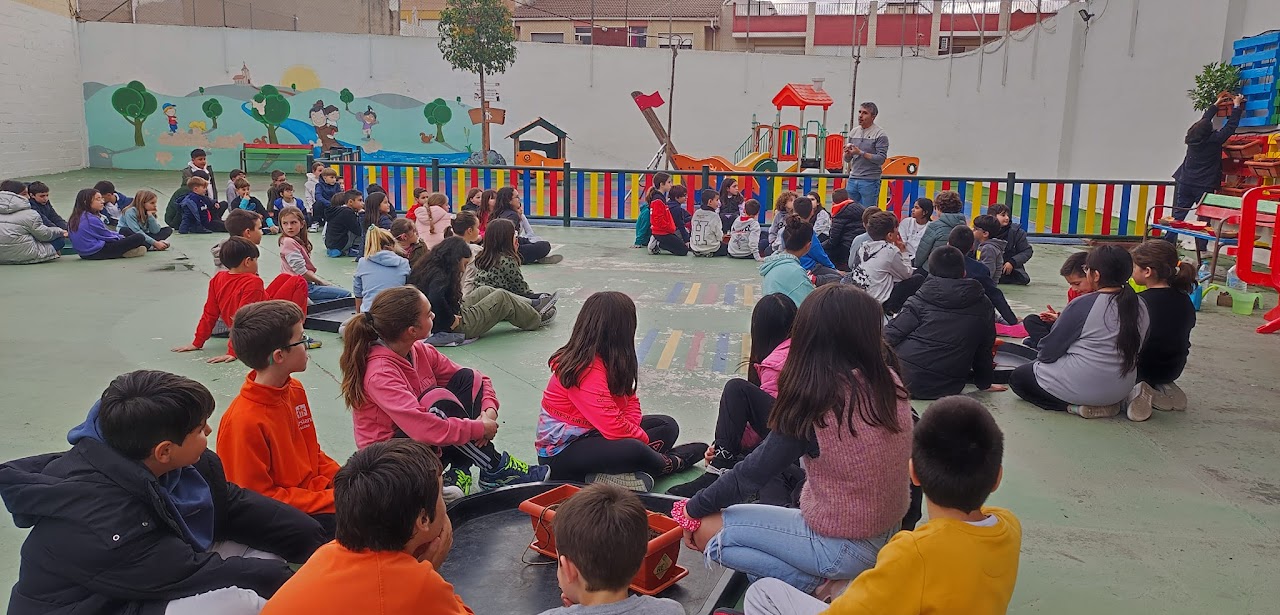GHANA: Don Bosco Youth Network and VIS provide green farming training for teachers and youth mentors

(MissionNewswire) The Don Bosco Youth Network and the Salesian-run International Volunteer Service for Development (VIS) are promoting the green economy and sustainable agriculture as part of a project for Local Economic Empowerment for Women, Youth and Vulnerable Groups. The Don Bosco Youth Network of the Salesian West African Province organized an educational session for trainers in bio-entomology to boost its campaign and promotion of organic agriculture as part of its commitment to Don Bosco Green Alliance.
Don Bosco Green Alliance members work to create an environment that is safe and caring for all life on the planet while building up a new generation of environmentally committed citizens and leaders. The Alliance’s priorities are combating pollution, reducing global warming and eliminating disposable plastics.
The bio-entomology training brought together 30 participants from various Salesian disciplines and programs including Salesian agriculture teachers and staff from the Ministry of Food and Agriculture. Ten youth who are mentor farmers also attended the course. Participants attended classroom lectures, field identification and preparation of botanicals, testing of efficacy of organic preparations and control of pests in the greenhouse. The training was led by Professor Daniel Obeng-Ofori, vice-chancellor of the Catholic University College of Ghana, Fiapre.
The training provided an overview of methods for using plants and botanicals to control pests in farming and storage of crops. Beneficial insects and organisms were identified so that farmers knew what they were, their benefits and not to kill them when they are found on the farm. Parasitoids (organisms that feed on pests) were also studied.
In addition, the training educated the participants on various methods of preparing the botanicals and multiplying beneficial organisms. Other methods for preventing and controlling pests were part of the integrated approach without the use of inorganic pesticides. The participants finished the course learning the key effects and impacts on the indiscriminate use of pesticides on human health, sustainable production, beneficial insects, parasitoids and the environment.
“Salesian missionaries are focused on ensuring that teachers and mentor youth have access to the education they need in order to best train the student population in Salesian schools,” says Father Mark Hyde, director of Salesian Missions, the U.S. development arm of the Salesians of Don Bosco. “Agriculture education promotes best practices in farming so that production in these farming communities remains high and methods are as healthy and green as possible.”
The first Salesian missionaries in Ghana arrived in 1992 in the city of Sunyani and soon became known for their educational work, especially for at-risk children and victims of trafficking. Children face extensive hardships ranging from being exploited in child labor to being sold by their relatives, often to pay off a debt. In the Lake Volta region, it is estimated that there are approximately 21,000 children and teen laborers who have been prevented from attending school.
While Ghana’s economy continues to improve, nearly 45 percent of the population lives on less than $1 a day, according to UNICEF. Rural poverty remains widespread in the dry savannah region that covers roughly two thirds of Ghana’s northern territory. Small-scale farms suffer from a lack of infrastructure and equipment, both of which are needed to shift from subsistence farming to more modern commercial farming which would yield greater incomes and a chance to escape poverty.
###
Sources:
ANS – Ghana – Formation of Trainers in Bio-Entomology
UNICEF – Ghana
Salesian Missions – Ghana




